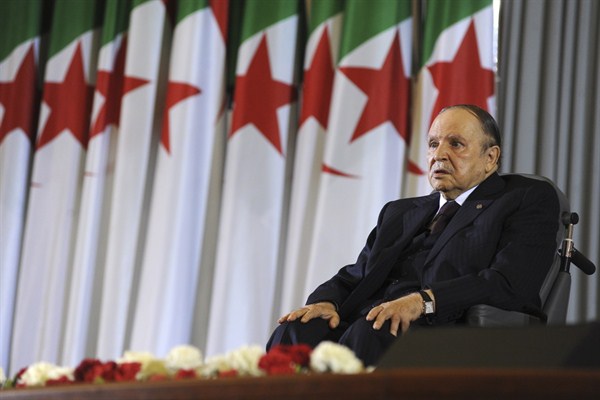In this week’s editors’ discussion episode of the Trend Lines podcast, WPR’s editor-in-chief Judah Grunstein, managing editor Frederick Deknatel and associate editor Elliot Waldman discuss the resignation of Algeria’s aging president, Abdelaziz Bouteflika. The move follows massive demonstrations that have brought hundreds of thousands of Algerians into the streets to demand Bouteflika’s removal, but also broader political reforms. Amid questions about the shape of Algeria’s future, WPR’s editors discuss the prospects for political renewal there and elsewhere in the region, and the implications for U.S. policy toward the Middle East.
If you like what you hear on Trend Lines and what you’ve read on WPR, you can sign up for our free newsletter to get our uncompromising analysis delivered straight to your inbox. The newsletter offers a free preview article every day of the week, plus three more complimentary articles in our weekly roundup every Friday. Sign up here. Then subscribe.
Listen:
Download: MP3
Subscribe: iTunes | RSS | Spotify
Relevant Articles on WPR:
Taking the Long View on the Arab Spring, After Bouteflika’s Resignation in Algeria
Bouteflika May Have Stepped Aside, but the Generals Really Running Algeria Won’t
Preserving the Power of U.S. Economic Sanctions in a Multipolar World
How Modi Won the Political War Over the Latest India-Pakistan Crisis
NATO at 70: Toward European Strategic Responsibility
Trend Lines is produced and edited by Peter Dörrie, a freelance journalist and analyst focusing on security and resource politics in Africa. You can follow him on Twitter at @peterdoerrie.
To send feedback or questions, email us at podcast@worldpoliticsreview.com.

